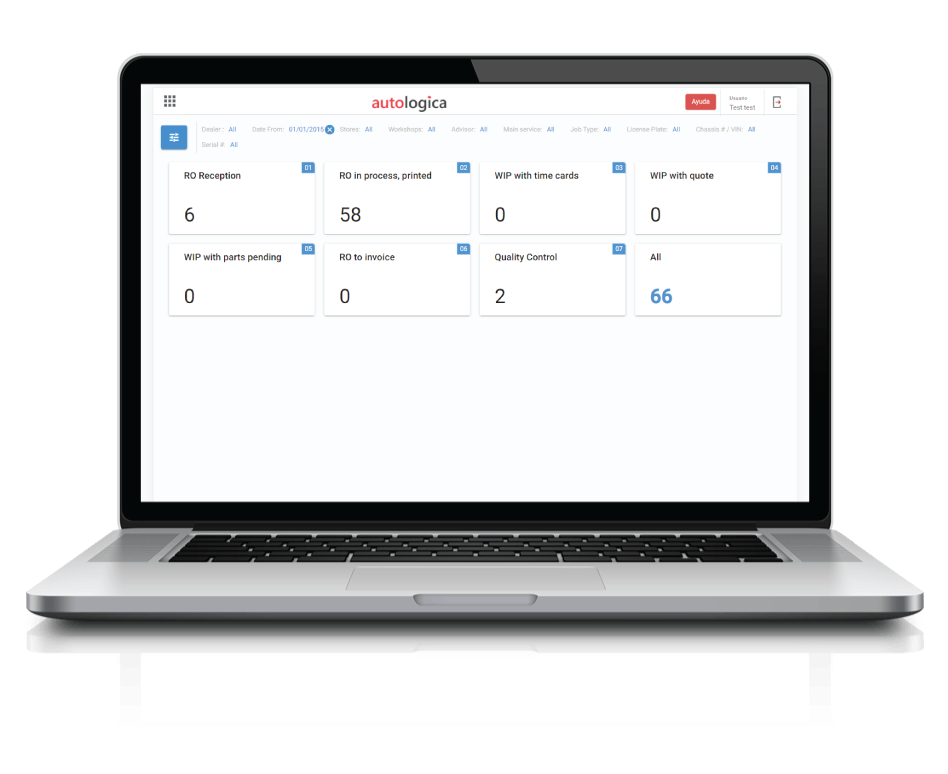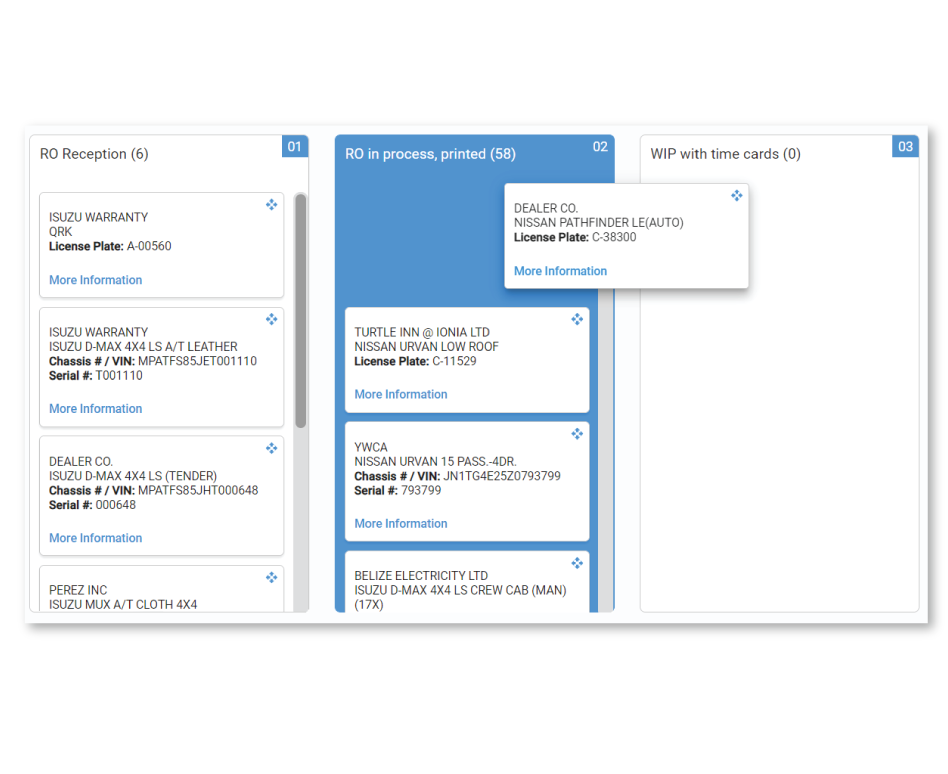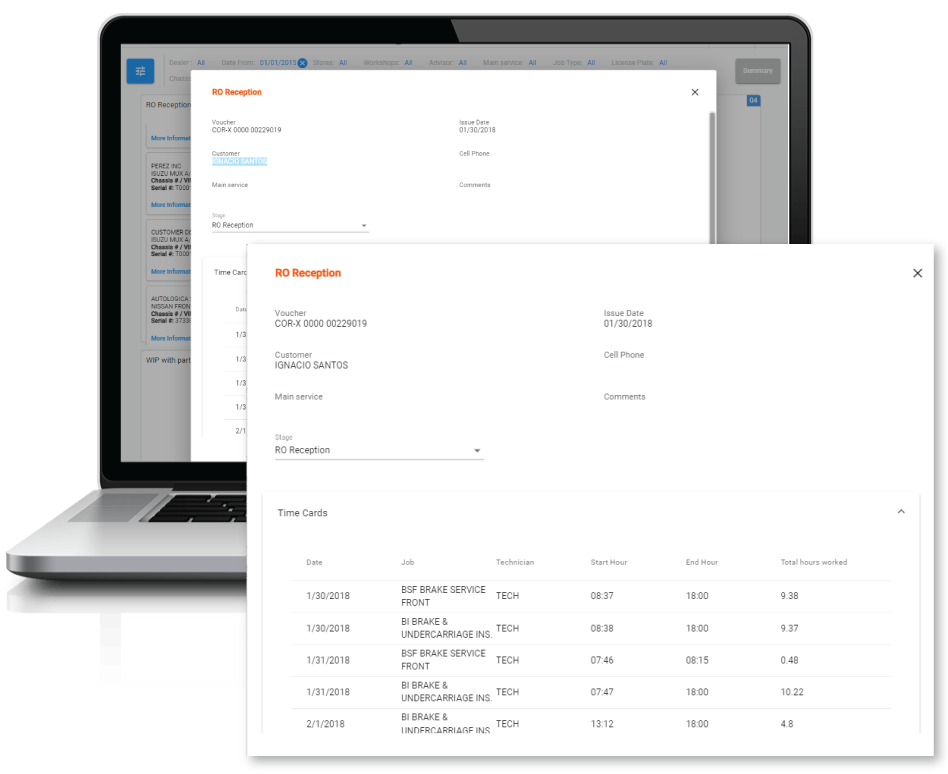Every industry is constantly evolving its processes, streamlining important tasks, eliminating repeat work… in other words, saving time. Time is money, and software should take this premise into account.
Time is especially valuable In a dealership’s Service Department during periods of low vehicle sales. The workshop needs to perform more jobs, faster, and with the same quality.
Repair Order Progress: Less Time, More Billing
To address this need, we recently launched the Repair Order Progress module, a key part of Autologica Sky DMS that helps the Service Manager monitor the workshop in real time, organize work in progress, detect and solve delays, and make the most of every available hour.

Repair Order Progress has been implemented in vehicle and machinery dealers with amazing and immediate results. These are the main real-world benefits seen by dealers who are using the module:
Eliminate Delays
RO Progress detects in which stages bottlenecks accumulate; these can then be optimized to free up work bays so that more vehicles could be serviced.

Improve the Preparation of Parts for Each Job
One dealer saw that repair orders were piling up in the Work in Progress (WIP) stage. After investigating this situation, they noticed that the problem was that the delivery of parts from the Parts Department to the Service Department was taking too long. Detecting the problem led to a solution: preparing the parts before each vehicle arrived at the workshop.

Audit Repair Orders that Have Been Open a Long Time
Several dealers found that they had many repair orders that remained open for too long, even though the vehicle had already been delivered. These were found to be mistakes, but its easy to see how an open repair order can be a cause of shrinkage, not an uncommon scenario.
Increased Billing
All of these benefits resulted in more time… time that was used for other important tasks, such as call campaigns to offer maintenance services, special promotions, battery changes, seasonal jobs, etc.
More importantly, saving time also created potential billing by freeing up resources that could be dedicated to serving more vehicles.


